
PF Sloan at the Fantasy Fair – the first real rock festival – in California, 1967
He’s a musical legend who’s survived the best and the worst of times – and he’s playing Glasto this month
![]() e’s probably best known for writing Eve Of Destruction, and for the song that Jimmy Webb wrote about him (and that bears his name). But there’s a lot more to PF Sloan than just two songs. Here’s a man who was shown guitar chords by Elvis, who was instrumental in The Beatles getting signed in America, who hung around Topanga Canyon with Jim Morrison. A man who’s seen the music industry from the inside – at its best and at its worst – and lived to tell the tale.
e’s probably best known for writing Eve Of Destruction, and for the song that Jimmy Webb wrote about him (and that bears his name). But there’s a lot more to PF Sloan than just two songs. Here’s a man who was shown guitar chords by Elvis, who was instrumental in The Beatles getting signed in America, who hung around Topanga Canyon with Jim Morrison. A man who’s seen the music industry from the inside – at its best and at its worst – and lived to tell the tale.
Born to Jewish parents in New York, Philip Sloan’s family moved to Los Angeles when he was a young boy. He began playing guitar and writing songs as an adolescent and found success very early in his career, penning over 20 hit singles for the likes of The Searchers, The Turtles, Herman’s Hermits and Jan & Dean. There was another side to Phil Sloan, though. As PF Sloan, he wrote the aforementioned Eve Of Destruction for Barry McGuire, recorded a string of albums of his own in a protest folk style à la Dylan and Woody Guthrie, and featured heavily on early recordings by The Mamas & The Papas.
But as his new autobiography What’s Exactly The Matter With Me? documents, his more avant-garde musical adventures didn’t go down too well with his major label paymasters – who saw him off, he alleges, pretty much at knife-point. Shunned too by the underground, by the early 70s he found himself living the life of a near-derelict junkie in Greenwich Village. The long road back from that low point, to today when his concept album My Beethoven has just been released and he’s playing at this year’s Glastonbury… well, you’ll have to read the book to find out about that.
In the meantime, we got him on the phone to find out what advice he has to offer today’s aspiring songwriters…

Phil’s new autobiography
Let’s start by talking about your autobiography, What’s Exactly The Matter With Me? Why did you decide to write the book now?
“I don’t know, it just seemed to come up. My partner Steve Feinberg and I were working for two years on a musical adaptation of the life of Beethoven, and we got finished with that and decided we wanted to continue working together, so we decided to explore my early years in music.”
There are some quite hair-raising stories in the book, not least when Jay Lasker [Dunhill Records boss, later of ABC and Motown] offers you a razorblade and invites you to castrate yourself if you want to retain your songwriting royalties. Not to put too fine a point on it… was it a case of waiting until certain people weren’t around any more?
“Yeah, that’s not your average morning at the record label! Honestly? There was a lot of fear for a lot of years from those people. They were powerful and wealthy and vindictive, and I kept a low profile for a lot of years. So yes, I think you might be right, I think there’s an element of time that made it conducive to start working on the book now.”
Yet you say in the book that you’ve now found it in you to forgive those people…
“My partner Steve made me say that. I actually hate their guts and wish that they were – nah, I’m kidding! I don’t know, what can I say about forgiveness? It’s one of the many graces of life, if you forgive others for their trespasses on you it winds up working to make you feel happier and healther inside… I recommend it highly! It doesn’t do to hold a grudge.”
The book also contains several passages – notably when you meet James Dean, and the chapter ‘The Angels of Greenwich Village’ – that have a supernatural or transcendental element to them. Did you have any doubts about including those parts of your story, about what other people would make of them?
“That’s an interesting question. I don’t think that all the people in the world agree on anything, except that we’re all looking for the same thing in life, and that is happiness and love and well-being. Other than that, the metaphysical experiences that people encounter in their lives, either through personal spiritual revelation or manifestations of that… hang on, Steve wants to say something.
STEVE FEINBERG: “We talked for a long long time about the James Dean thing, and the Angels of Greenwich Village, and it was exactly what you’re saying, what are people gonna think about that, especially when it’s bookended with a chapter of reality, something like the Elvis Presley meeting? And we talked about that for so long, and we decided, it happened, that’s will Phil saw and therefore it was reality. And not to include it in the book would be going against his memory. Whatever he saw that night in Greenwich, that was important to document as he saw it. As was the James Dean thing.”
PHIL: “Let the chips fall where they may. Whether you believe it or not, that’s what I experienced. It hasn’t been an ordinary life.”
“It’s a different level of consciousness that’s awakened”
Clearly not! Okay, let’s move on to talking about your actual songwriting. In the book, you discuss the differences between the pop songs you wrote for others as Phil Sloan, and the more conscious/political songs you recorded yourself as PF Sloan. Did the writing process also differ?
“Fascinatingly so. It’s like the difference between watching a popcorn movie which you really can enjoy, and watching an Ingmar Bergman film. It’s a different level of consciousness that’s awakened, and I can’t tell you how it’s awakened, but once it’s awakened you find it very difficult to go back to writing simple songs. I mean pop songs, per se. But I found enjoyment in both. The level of consciousness that was working that evening with Sins Of A Family, Eve Of Destruction and Take Me For What I’m Worth all coming out at the same time, that was a different level of consciousness, but all of it is thrilling.”
But you have no idea how that level of consciousness was, or can be, attained?
“No, it just happens. It would be wonderful to be able to access it at will! But, I don’t know if fellow songwriters who have taken on another name have noticed this, but it does something strange to your life. What I’ve discovered is that this ‘PF Sloan, songwriter’ entity seems to have a life of his own. He seems to be observing Phil Sloan, watching Phil Sloan’s life and the people in his world and what goes on, but is silent until it’s time [to write] and then that entity seems to come into play.
“It’s not schizophrenic, I’ve looked at it for a lot of years, looked at other songwriters like Dylan and Jagger and Lennon, and tried to get some idea of what they were experiencing when these higher form of consciousness songs were coming through them, versus, you know, Let’s Spend The Night Together.”

Phil in the studio with his early songwriting partner Steve Barri
So can you tell us a little more about how your songwriting methods varied between the two situations?
“The energy and the circumstances of actually being paid to write songs is quite different than when you’re writing songs for yourself, which is what I did as PF Sloan. As Phil Sloan, I was just jazzed to be… living in a time where you were listening to Little Richard and Chuck Berry and Eddy Cochran and Buddy Holly, all these amazing energy beings were filling up my life with light and happiness, so the thrill of those people just led me to want to write a song as good as anything that I thought I’d heard from them. That was sort of the impetus.
“What happened later was, rather than writing just a pop song about love, I began to really chronicle my life as personal experience, which is a different thing. It’s like the difference between I Wanna Hold Your Hand and Strawberry Fields. And that seems to be where you go, as a songwriter. It seems to be like an evolution, where you really want to describe what you’re experiencing in life from your own viewpoint, rather than [writing] just a generic, Under The Boardwalk type of song. As Phil Sloan, that’s basically what I was doing, but I was trying to do it with as much joy as I could possibly muster. It’s a learning and growing experience, for sure.
“I did notice that when PF Sloan first emerged, it was different from how Phil Sloan was writing. Phil Sloan was writing melodies first, PF Sloan was writing lyrics first. It’s like I had a sheet of paper of written lyrics and I got the feeling like, well what is this? Is this poetry, is this a thesis, what am I supposed to do with this? And I thought, well I’ll just get out my guitar and write a little melody to it. So that was a fun thing to do, work from a lyric and write a melody to it, because I was working the other way as Phil Sloan, I was working from a melody and coming up with a lyric to it. So it was the exact opposite.”
There are several points in the book where you recall hearing a song and saying, ‘That’s a hit!’ when others around you weren’t so sure. Would you say that’s a gift?
“Yes, and you know I’ve wondered about this, because there are things in this life that are mysterious and unknown, and how is it possible that you can hear a song, and ten people in the room don’t like it, and you say “That’ll be a Top 10 record”? Is it predestiny, is it the filter of the times, is it sincerity? Is it that your soul is not covered over with callouses, so that you’re open to the music and the singing and the lyric where others are not?
“I think you know when you’ve written a hit song”
“I think you know when you’ve written a hit song – I can’t tell you why that is, it’s almost like when a mechanic finds the problem with a carburettor and then the carburettor kicks into action and you kind of know… there’s just a feeling of joy and release, that you’ve done something wonderful. It thrills you, and you get the feeling that if it thrills you, it will thrill other people as well. And when you hear that in other people’s work, you know that it thrills you and you know that other people have been thrilled by it.
“You know, we’re one consciousness in this world, everyone has different tastes – some people like vanilla, some people like chocolate, some people like strawberry. But we’re one consciousness, we’re one people, we’re one world, and none of us are really working in a vacuum. We’re working with our hearts and our souls within the limitations that music instills in us, but we’re constantly trying to break through those limitations. That’s what I get out of it after being in it for about 40 years.”

Phil with his Harmony Sovereign guitar and an impromptu audience
Did you tend to write mostly on piano or on guitar?
“Generally it was… 95 per cent of the time it was a guitar. But when I didn’t have the money for a guitar it was a piano at Screen Gems Music, in a little room there. So I would write a little bit on piano but generally the instrument of choice was the guitar.
“Writing the Beethoven cycle more recently though was amazing because it’s all piano, all orchestra. I did add some acoustic guitar to it but basically it’s all piano-based… and I had to learn to play piano! And I did that by listening to Glenn Gould for about six years, listening to him play Beethoven. And at the end of that thing I just sort of absorbed it, and I sat down at the piano and began composing.
Have you ever tried writing on any other instruments?
“Yes I have, of course… ukelele, and a drum-based song. But generally, growing up with pop music and then getting into folk at a young age, basically if a guitar’s got magic in it, if it’s a really lovely guitar, when the guitar sings, then you just follow along.”
“That guitar wrote dozens of songs, and it was painful”
You think the actual instrument itself is important, then?
“I really do, I’m one of those that honestly believes it’s there in the instrument. When I first started writing, I had a very inexpensive guitar where the strings were so high above the frets that literally my fingers would bleed to play a song! And that inculcated in me the idea that to write a song that’s worthwhile, means that it’s painful. That guitar wrote dozens of songs, and it was painful, my fingers would bleed. So that gave me the idea that for me to write a song, it had to be worthwhile enough for me to endure the pain.
“Marty Ballin of Jefferson Airplane told me a story one time… a friend of his was going to spend $17,000 on a guitar and he called up Marty and asked him, ‘Am I crazy, can you actually spend $17,000 on a guitar?’ And Marty said, ‘If the guitar’s got magic in it, I would spend $50,000 for it’. So I guess it’s sort of like the magic flute… or the magic guitar, or the magic piano!”
Was there any particular routine to how you did your songwriting back in the 60s?
“When I was a gun for hire at Dunhill Records, basically at 1 o’clock in the afternoon we’d sit down at a table in a room that’s got a good echo to it, and work from that. Work for a couple of hours, and then work on the song non-stop the rest of the day, or the rest of the evening, or the rest of the week. Late at night, when you put your head down on the pillow and you listen to the lyric and the song run through your mind, all of a sudden it becomes clear what you really want to say.
“BB King once told me, when I met him at a very young age, he said “Philip, 90 per cent of what you’re going to write is bullshit. It’s up to you to discriminate the bullshit from what’s really good.” And I find that I can do that at night. I let the song play in my head and if the song thrills me, if it sounds real and sincere, I can get some sleep. Otherwise I’ve got to work on it.”

In a relaxed moment, mid-60s
Do you ever put songs aside and come back to them later?
“I did that with My Beethoven… that was a 17-year process of getting rid of all the bullshit inside me. I didn’t realise I had so much bullshit in me! I would be writing lyrics and think, this is great, and six months later I’d look at it and go my God, I have no idea what I’m talking about, this is just bullshit! And slowly but surely, you peel away all those layers of bullshit and you come face-to-face with your soul. And yeah, I think time is a luxury in that regard. But when you’re in a group or when you’re putting out hit record after hit record, you don’t have any time, you don’t have the luxury of six months. Back in the day you didn’t, anyway. Today you do.”
So are there songs from your earlier days you now wish you could have spent more time on? “Oh God, come on, yes… dozens and dozens! I can hear the laziness, and that’s what it is, laziness and maybe just tiredness, where you’re written something wonderful for the first verse or two and then you’re just lazy. You’ve got someone waiting for the song and you just cop out. And then it doesn’t become a hit and you listen to it and you’re like yeah, if I could I’d have taken that back and spent more time on it… but time was a luxury in those days.”
Over the years you’ve worked and hung out with some of the most revered songwriters and artists on the planet, including The Beatles, The Beach Boys, The Rolling Stones and many more. What’s the best bit of advice any fellow songwriter has ever given you?
“Songwriters are like a family of man, we work alone and yet we’re all connected. You hear the work of a songwriter and you go my God that’s great, or my God what was he thinking. I think the advice that I got from other songwriters was from their songs… you know, how deep can you go and yet show them that it’s commercial?
“And the name of the game here is riding the lightning bolt between creativity and commerciality. Beethoven had it, Mozart had it, it was a very fine line between commerciality and creativity. And the advice that I would give, is if you’re riding the wave of commerciality, try and find… write on your own the songs that you really want to write, but don’t give up your day gig!”
As the book documents, you had a pretty rough ride at the hands of the music industry (to say the least). What advice would you give young songwriters today, so that they don’t have the same kind of problems?
“The first rule is that when they tell you you’re part of a family, get out of there! The second rule is, do try and get an attorney. Let’s face it, the truth is that the first time someone tells you they like your songs, you melt. You’re like a $15 hooker, you’ll do anything, because to become a professional – for someone to pay you for what you’ve done – is what we’re all trying to accomplish in this world. But definitely don’t go with someone who says you’re now part of our family… and try and make friends with an attorney over tea somehow. And have faith in yourself, because time will prove everything that you thought was true wrong and irrelevant. So have faith in yourself.”
“What you have today is a handful of bean-counters”
Is the music industry still as greedy and brutal today as it was in the 60s, do you think?
“Well, if you’ll forgive me for being facetious for just a moment, the weapons of torture have become more sophisticated! Today they won’t hang you by your feet out of a window, the methods have become more subtle. What you have today is a handful of bean-counters who are looking for absolute 100 per cent commerciality, and if everyone was able to write Sugar Sugar like The Archies, every music company would be happy. It’s the same old thing, except that there are less people out there who understand creativity and can understand its commerciality.”
So you think it’s got worse in some respects?
“Yes, definitely, but that’s hard to imagine. That’s like giving Hitler a laser beam! It’s always been terrible, but that doesn’t stop the artist, the songwriter, the singer from expressing the gift that God has given them and enduring that torture.
“You know, I’ve seen thousands of talented people fall by the wayside and I’ve seen people come to the forefront and I’ve always wondered, what is it? And what it is, is persistence. If there’s really any one thing, it’s persistence. You back off for a while, you lick your wounds, and then if you believe in yourself, in this gift that you have, then you persist and you figure it doesn’t matter if it takes 30 years, God will find a way to provide a living for me until someone hears my talent. It really takes persistence, that’s the key word. Even more than talent, it’s persistence. Because you’ll get more talented as you grow. Where you are now, at 20, 24… you think you’re at your peak but you’re not. Life’s experiences are going to help you grow and you’ll get better and better and better. So you have to be persistent.”

Phil’s new album ‘My Beethoven’
Coming up to date now, your latest project is My Beethoven. Listening to the album, it definitely sounds like songs from a musical but we couldn’t see any reference to it actually being staged. Can you explain what the story is there?
“Well, that is something that the good Lord will have to… we’re working on that! Steve and I worked on Secret Life for two years but it came out over 17 years, these nine songs, and then Steve Feinberg and I got together and wrote this popera. So that hopefully will happen in the future, God willing. The idea of it was not about about a popera originally, it was just that my partner listened to it and said there’s a play inside those songs, so let’s write the play. I had no idea that they would turn it into a play. But yes, a script does exist and while I’m in London we’re hoping to meet with some theatre producers.
“To be very honest with you, inside of all those songs is my life. It seems to be about Beethoven, and it is, but it’s also about me.”
So you see parallels between your life and Beethoven’s? You do mention in the book that he was once dismissed as a Mozart copyist, just as you were dismissed as a Dylan copyist…
“Yes I do, that’s what first captured me 17 years ago when I started reading about Beethoven’s life. The comparisons between Dylan and me, and Beethoven and Mozart… the fact that Beethoven played folk guitar and wrote over 100 folk songs, the fact that he was struggling, there were a lot of parallels that I could relate to, until I realised that Beethoven is not an icon, he’s a human being like myself, and I could relate to his sufferings through my own suffering.
“So there’s a lot of me in all of that. The lines about not wanting to give in to despair and “I know what self-pity is”, I felt that I was very much alone in all that until I really got into Louie’s life and realised that, as great a composer as he was and a pop composer as I am, we shared two things in common: a love of music and the fact that we were considered second-rate.
“I really like Rumer’s work, actually”
What with the My Beethoven album and a Glastonbury appearance coming up, you’re more ‘visible’ now than you have been for many years. What current songwriters, if any, do you admire?
“Well, I like The Edge and Bono… and I like Nick Lowe and Elvis Costello a lot. And I really like Rumer’s work, actually, it’s just an absolute delight to listen to her songs and her lyrics.”
Given your past bad experiences, do you have no doubts about getting back into ‘the biz’?
“No, because I’m a different person than I was. Now my life is more about self-awareness, and love and people oriented, rather than seeking acceptance or financial gain. Music is communicating with people, and I’m being given an opportunity to communicate with large amounts of people, so I dearly appreciate that.”
Speaking of business matters, we also noticed that a number of compilations of your 60s work are now available. Given the bad treatment you had before, as chronicled in the book, are you getting paid properly for those albums now?
“Well, it’s still a bit of a sticking point but it’s better than it has been. But just, honest to God, just the fact that all these years later, that some kid like myself who instead of becoming a pharmacist got into songwriting and singing, the fact that people can appreciate something I’ve done after all these years, it’s just wonderful. It’s amazing. I’m just very grateful.”
Interview: Russell Deeks
PF Sloan plays at St James’ Church, London on 23 June, and at Glastonbury on 29 June


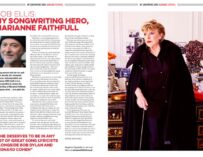
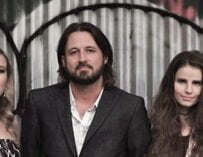


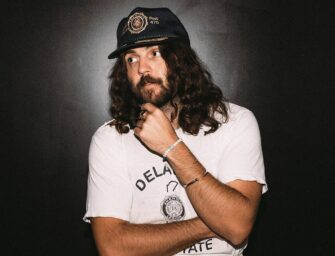
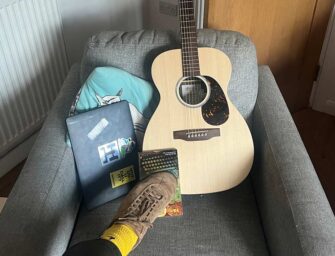
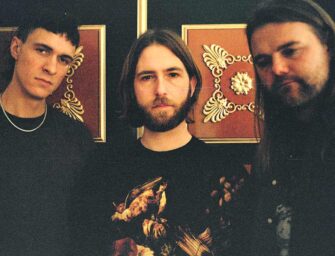
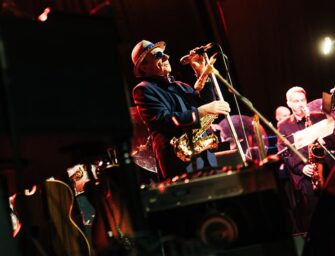





















Related Articles